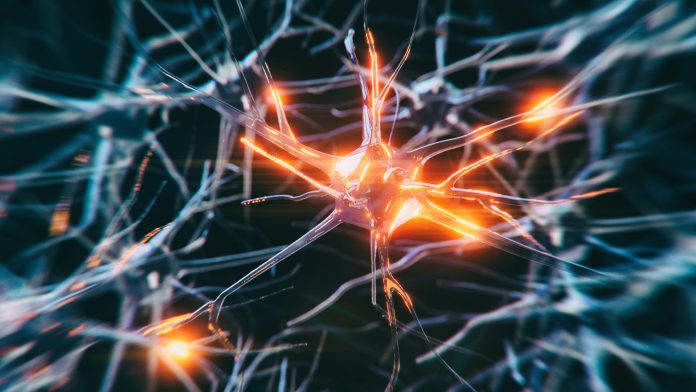
As medical experts urgently call for action to tackle MS, one company has developed a drug it believes can treat the condition by repairing nervous system damage.
This World Brain Day, on 22 July, The World Federation of Neurology, is raising global awareness of multiple sclerosis (MS). Currently, the degenerative disease has no known cure and there are few new drug candidates with the potential to either ‘stop’, reverse, or repair the damage it causes. The not-for-profit organisation is now looking to the scientific community to make a breakthrough in research and potential treatment for MS.
NVG-291
One small biotech R&D innovator from Canada, NervGen Pharma Corp., is making significant strides towards this. The company believes its novel drug candidate, NVG-291, could be a quantum leap in treating the type of nerve system damage caused by degenerative conditions such as MS. In pre-clinical trials, the drug has demonstrated the capability to repair and revitalise damaged nerves and neurons by triggering the body’s natural ability to repair itself.
NervGen’s CEO, Paul Brennan, describe NVG-291 as “a completely new treatment paradigm.”
Backed by 30 years of research
The treatment was developed following over 30 years of pioneering medical research with the aim of determining the key element to repairing nervous system damage and restoring lost function. The work was carried out by award-winning American neuroscientist Dr Jerry Silver, who has now licensed the technology to NervGen.
NervGen claims that the drug has the potential to address nervous system damage in a range of debilitating medical indications, whether caused by trauma or chronic disease. This is a stark contrast from existing MS drugs that focus on addressing underlying symptoms, such as inflammation, in an effort to slow down the progression of the disease. The difference with current MS drugs is that, once a disability has developed in a patient with MS, the drugs cannot restore the lost function.
How NVG-291 works
Any time there is damage to the nervous system – whether that is via trauma or a neurodegenerative disease such as MS or Alzheimer’s disease – scar tissue is formed. NVG-291, has been shown to stimulate multiple repair mechanisms at a cellular level in animal studies. Not only does NVG-291 generate damaged neurons, but it also creates entirely new connections.
In particular, this peptide allows nerves to repair in places that are normally highly inhibited by scar tissue and promotes “remyelination” – the process of replacing myelin, the tissue that surrounds and protects neurons and which is often damaged as a result of diseases such as MS.
The ability of NervGen’s NVG-291 to remyelinate and enhance plasticity represents a significant step forward in repairing the chronic effects of MS.
Dr Jerry Silver
Dr Jerry Silver, co-inventor of NVG-291, is a professor at the prestigious Cleveland Clinic and conducts his research at the Department of Neurosciences at Case Western Reserve University in Cleveland, Ohio.
Dr Silver has been working on this unique approach to nerve rejuvenation biotechnology since the early 90s, by focusing on a protein called CSPG that inhibits the body’s natural ability to repair and regenerate damage to the nervous system.
After years of thorough research, Dr Silver now believes he has found the solution to curtailing the activity of these CSPG molecules, thus promoting the regeneration of damaged nerves. It involves neutralising a certain receptor called tyrosine phosphatase sigma (PTPσ) that prevents healing in the scar tissue.
For years, Dr Silver focussed his energies on spinal cord injury research, where he demonstrated unprecedented results in animal models using earlier iterations of NVG-291, dramatically improving both motor function and sensory function.
Implications for future treatment
NervGen is now pushing to broaden the therapeutic reach of NVG-291’s unique healing mechanism. This now includes MS, Alzheimer’s disease, spinal injury, brain injury, stroke, and many more central nervous system diseases lacking effective treatments.
This continued progress of NVG-291 towards human clinical trials in MS patients, as well as Alzheimer’s sufferers, also represents an opportunity for Dr Silver to revolutionise the treatment of some of society’s most debilitating and hard-to-treat diseases.
NervGen is now working to achieve clinical validation for NVG-291, in the hopes that it will help to eventually conquer such debilitating conditions as MS.


















